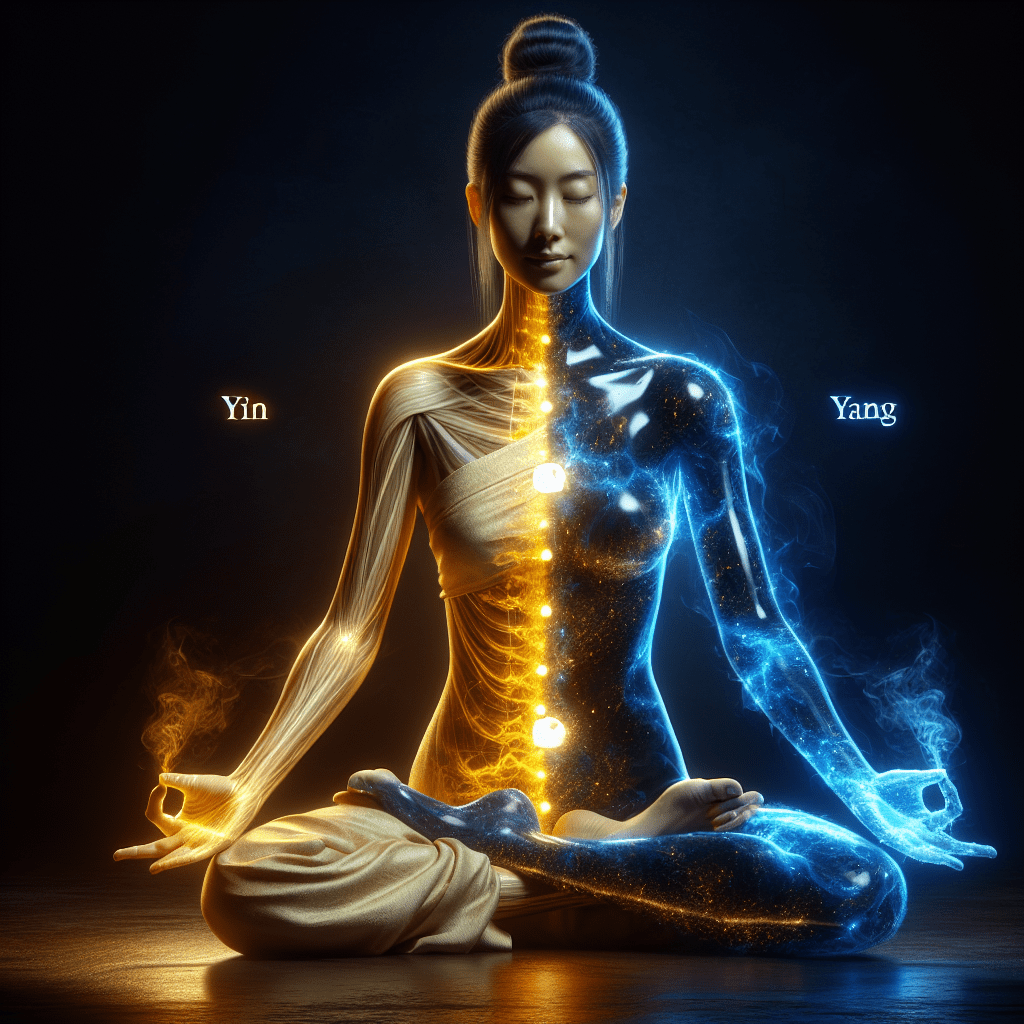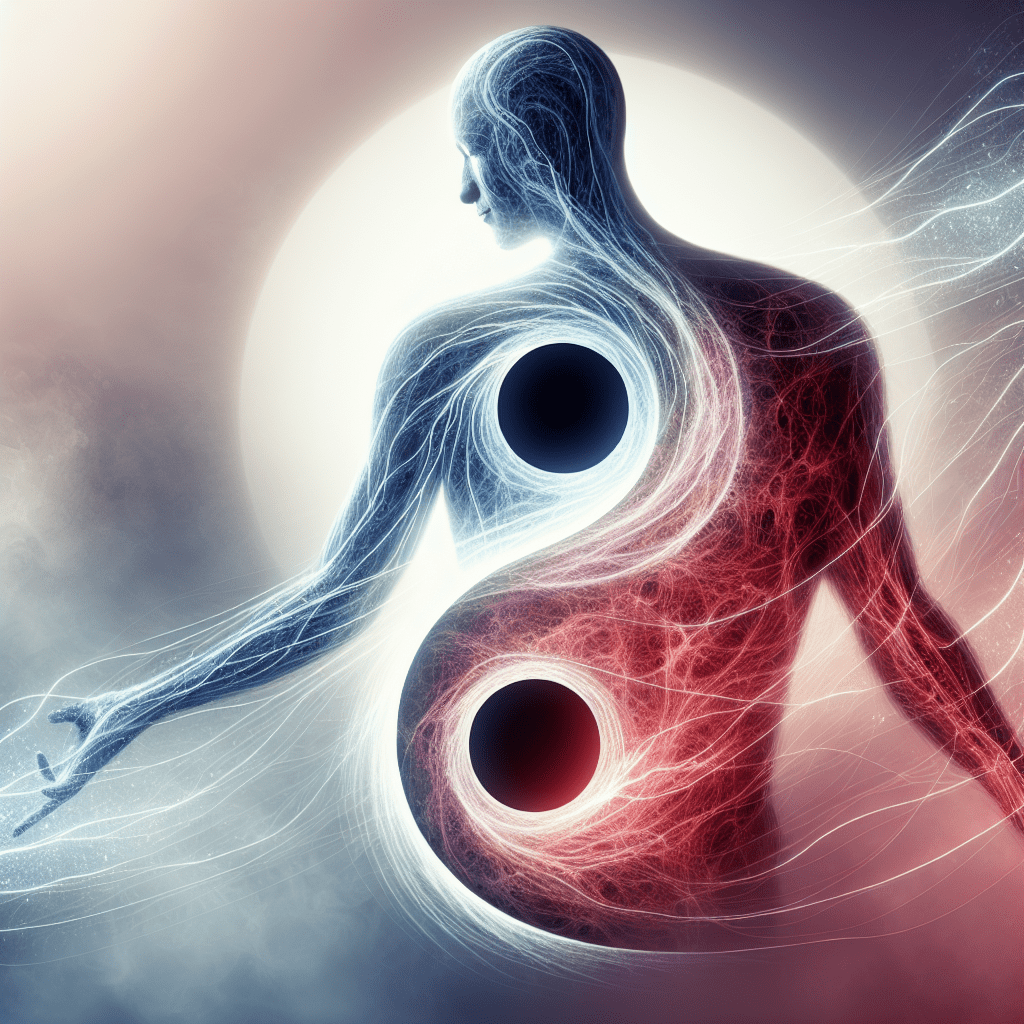Have you ever felt completely drained, like your energy tank was running on empty no matter how many cups of coffee you gulped down or how many hours you slept? That was me three years ago. Doctors couldn’t find anything “wrong,” yet I was exhausted, moody, and completely out of sync with myself.
What finally turned things around wasn’t another supplement or medical test—it was embracing an ancient concept that’s been around for thousands of years: Yin-Yang balance.
Understanding Yin-Yang: The Dance of Opposites
In Eastern philosophy, Yin and Yang represent complementary forces that exist in everything around us. Think of them as the ultimate partnership—neither good nor bad, just different energies that need each other to create harmony. This concept forms the foundation of traditional healing approaches that modern medicine is finally embracing.
Yang energy is active, warm, and stimulating—think sunshine, movement, and daytime activities. Yin energy is cooling, restful, and receptive—like moonlight, stillness, and sleep. When these energies work together in the right proportions, we experience vitality and wellness. When they don’t? That’s when problems start showing up.
“The balance of Yin and Yang is not just some abstract Eastern concept,” explains Dr. Ming Chen, a traditional Chinese medicine practitioner I consulted during my health journey. “It’s a practical framework for understanding why we feel the way we do on any given day.”
What I love about Yin-Yang balance is how simple yet profound it is. Unlike complicated health protocols that require tracking dozens of biomarkers, this approach asks us to tune into the natural rhythms our bodies already understand.
Are You Out of Balance? The Signs That Something’s Off
Looking back, the red flags of my Yin-Yang imbalance were waving wildly, but I didn’t know how to read them. Maybe some of these sound familiar to you too?
Signs of too much Yang (and deficient Yin):
- Feeling “wired but tired”
- Racing thoughts, especially at night
- Anxiety and irritability
- Feeling hot or experiencing night sweats
- Dry skin and eyes
- Difficulty relaxing
Signs of too much Yin (and deficient Yang):
- Chronic fatigue and low energy
- Feeling cold frequently
- Low motivation
- Digestive sluggishness
- Tendency to feel sad or low
- Muscle weakness
In my case, I had a classic Yang excess. I was constantly buzzing with nervous energy while simultaneously feeling exhausted. My mind never shut off, yet my body felt like it was dragging through molasses. These are among the silent signals your body gives when screaming for harmony. Sound familiar?
The turning point came when I stopped seeing these symptoms as separate issues and recognized them as different expressions of the same imbalance. That’s when I could finally start addressing the root cause instead of chasing symptoms.
Take a moment to reflect: Which of these signs resonate with you? This awareness is your first step toward better Yin-Yang balance—and the renewed energy that comes with it.
Food as Medicine: Dietary Approaches to Restore Balance
Of all the changes I made, adjusting my diet according to Yin-Yang principles gave me the quickest results. This isn’t about restrictive eating plans—it’s about understanding the energetic qualities of food and how they affect your personal balance.
“In Eastern medicine, we don’t just look at calories or macronutrients,” says nutritionist Sarah Lin, who specializes in traditional Chinese dietary therapy. “We consider whether foods are warming or cooling, moistening or drying, and how they influence your unique constitution.”
Here’s how I applied this wisdom to fix my energy crisis:
For Yang excess (when you need more Yin):
- I increased cooling foods like cucumber, watermelon, leafy greens, and pears
- I reduced heating foods like alcohol, coffee, spicy peppers, and fried items
- I focused on hydrating foods since dryness is often a Yang symptom
For Yin excess (when you need more Yang):
- Add warming foods like ginger, cinnamon, moderate amounts of good quality meat
- Include roasted vegetables and soups
- Use warming cooking methods (baking, roasting) over raw foods
What surprised me most was learning about the importance of eating according to seasons—something my grandparents did naturally but our modern food system has largely abandoned. In summer, I now eat lighter, more cooling foods. In winter, I embrace more warming, nourishing dishes.
The timing of meals matters too. I discovered that eating my largest meal at lunch—when my digestive “fire” is strongest—and having a lighter dinner at least three hours before bed dramatically improved my energy levels and sleep quality.
“The Yin-Yang approach to diet isn’t about perfection,” Lin reminded me. “It’s about making small, consistent adjustments that bring you back toward your center.”
Beyond Food: Daily Habits That Harmonize Energy
While dietary changes formed the foundation of my energy recovery, I found that certain lifestyle practices were equally powerful for maintaining Yin-Yang balance day to day. These five habits became my non-negotiables:
1. Movement That Balances Rather Than Depletes
I used to think exercise meant pushing myself to exhaustion—more Yang on top of my already Yang-excess state! I switched to practices that balance both energies:
- Tai Chi: This gentle flowing practice taught me how to move with intention rather than force. Just 15 minutes each morning sets a balanced tone for my day.
- Walking in nature: I make time for at least one 30-minute nature walk daily, which simultaneously activates Yang (movement) while nourishing Yin (through connection with nature).
- Yin yoga: On days when I’m feeling particularly wired, these slow, supported poses help restore my depleted Yin energy.
“The goal isn’t to avoid all Yang activities if you have Yang excess,” explains tai chi instructor Michael Wong. “It’s to engage in movement that harmonizes both energies rather than pushing one to extremes.”
2. Breathing Practices for Instant Rebalancing
The simplest yet most powerful tool I discovered was conscious breathing. When I notice myself getting anxious or depleted, I pause for a one-minute breathing reset:
- For cooling excess Yang: I breathe in for 4 counts, hold for 7, and exhale slowly for 8 counts
- For activating sluggish Yang: I practice alternate nostril breathing, which balances both sides of the nervous system
I keep reminders on my phone to prompt these mini breathing breaks throughout the day, especially during transitions between activities.
3. Sleep Rituals That Honor Natural Cycles
Aligning my sleep with natural Yin-Yang cycles made a tremendous difference in my energy recovery. This approach is part of ancient wellness wisdom that can transform your daily routine. The most important changes were:
- Going to bed by 10:30 pm to catch the most restorative Yin hours (between 11 pm and 3 am)
- Creating a genuine wind-down routine: dimming lights, avoiding screens, and enjoying calming tea an hour before bed
- Waking with the natural rise of Yang energy at dawn when possible
“Sleep isn’t just about quantity,” says Dr. Chen. “It’s about quality and timing. When we align with natural energy cycles, we require less sleep to feel restored.”
4. Mindful Transitions Between Activities
I noticed that much of my energy depletion happened during transitions—jumping from work calls to parenting to household tasks without giving my system time to adjust.
Now I build in tiny transition rituals: three deep breaths before entering my home after work, a moment of gratitude before meals, or simply washing my hands mindfully between tasks. These micro-moments of presence help prevent energy leakage throughout the day.
5. Regular Energy Tune-ups With Professional Support
While the daily habits above created sustainable improvement, I found that regular sessions with practitioners trained in Eastern healing arts accelerated my recovery. Today, Eastern medicine combined with AI technology can decode your body’s secret language even more effectively:
- Acupuncture: Monthly sessions helped clear blocked energy and reinforced my body’s natural balancing mechanisms.
- Herbal medicine: Customized formulas supported my constitution and addressed seasonal imbalances before they could take hold.
“These modalities work directly with your body’s energy system,” explains acupuncturist Li Wei. “They’re like tune-ups that make your daily self-care practices more effective.”
What I appreciate most about these professional supports is how they’re tailored to individual needs. Unlike one-size-fits-all approaches, treatments address my specific Yin-Yang imbalances, which can change with seasons, stress levels, and life circumstances.
Bringing It All Together: Your Path to Balanced Energy
The most beautiful aspect of working with Yin-Yang balance is that it’s not about perfection—it’s about awareness and gentle course correction. Some days I still get out of balance, but now I recognize the signs earlier and have tools to bring myself back to center.
Starting your own journey toward better energy balance doesn’t require overhauling your entire life overnight. Begin with one practice that resonates with you, whether it’s adding more cooling foods to your summer meals or creating a more mindful bedtime routine.
Notice how these small changes affect not just your energy levels but your emotional state, mental clarity, and overall sense of well-being. This is the wisdom of Yin-Yang balance—when we harmonize these fundamental energies, improvements ripple through every aspect of our lives. Understanding your unique body constitution can further enhance these benefits.
As the ancient Taoists understood, health isn’t about forcing the body into submission but about aligning with natural principles that support balance. By embracing this wisdom and adapting it to modern life, we can address the root causes of fatigue rather than merely managing symptoms.
At HerbalsZen, this holistic approach to wellness guides everything we do. By merging Eastern wisdom about energy balance with modern technology, we’re creating new ways to support individuals on their path to vibrant health—honoring both the ancient understanding of Yin-Yang balance and the unique needs of today’s health-conscious individuals.
Remember, the journey to balanced energy isn’t a sprint—it’s a lifelong dance between opposing yet complementary forces. With each mindful choice, we can step more gracefully to the rhythm of that dance, finding our way back to the natural vitality that is our birthright.



